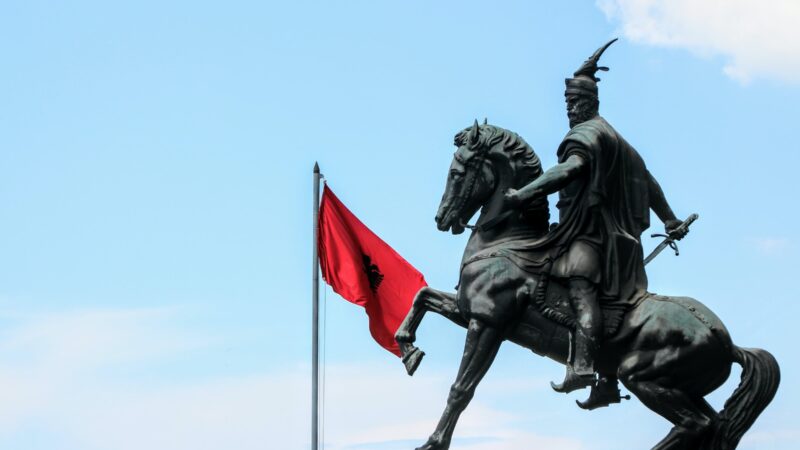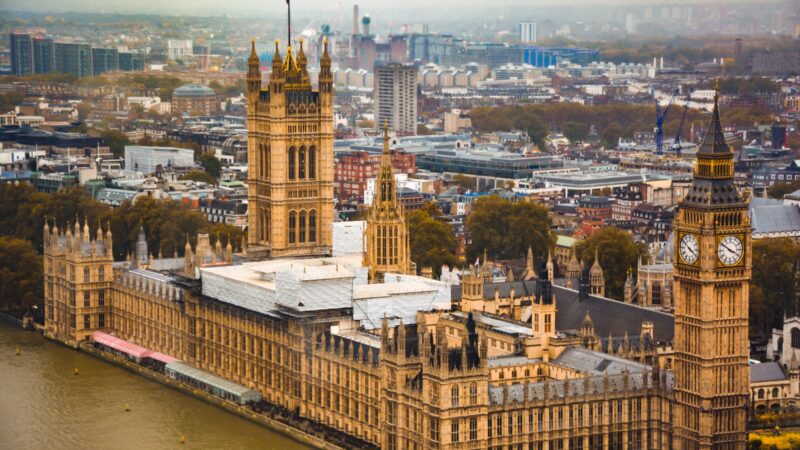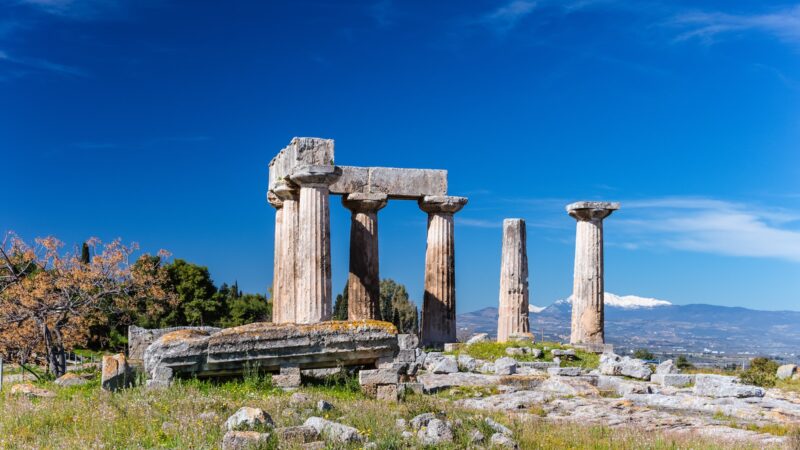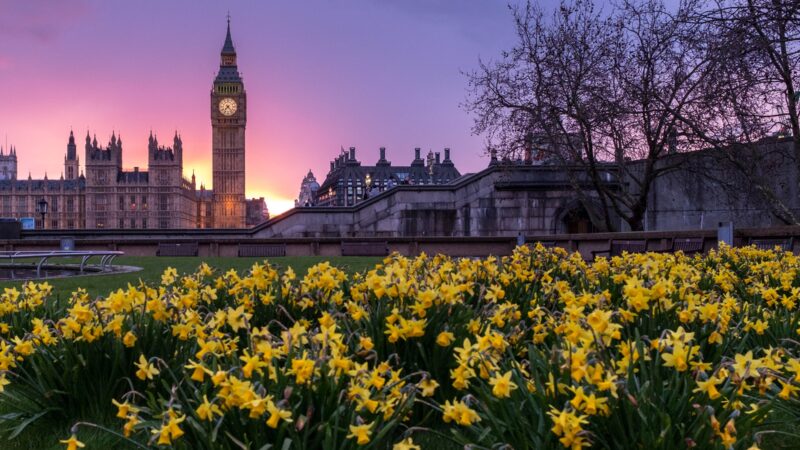Against Common Sense Conservativism
What a sad and wretched world we live in. The decline of Free Speech, British Values, and Common Sense has let the loony left and Radical Woke Nonsense destroy our Institutions.
Remix these words enough and you too can qualify to be a conservative commentator in the contemporary British political landscape. Looking across the commentariate of the right wing, you’d be forgiven for believing that these figures were grown in test tubes. One part ‘cultural Christian’ (with “mixed feelings” on gay marriage and abortion), another part straight-talker, with a dash of ‘political incorrectness’ (always tempered by a well-to-do attitude) and some kind of minority identity as a sting in the tail for the left, and you’ve got a Common Sense Conservative.
The Common Sense Conservative isn’t hard to find: they fill the ranks of GB News and do the talking for Talk Radio – what underlines the whole project is a constant bewilderment with the modern world, and an ability to formulate programmatic responses to the latest trends from the left wing. They are the zig to the liberal zag, but both invariably pull in one direction – towards more of the general decay they claim to lament.
One Common Sense Conservative is very quick to point out that identity politics allegedly places an expectation on what he, a non-white man should believe. This, in his view, is a form of racism, which ipso facto debunks identity politics. What goes undiscussed, is that the dispute between the Common Sense Conservative and the “Woke Left” (who are really just more internally consistent leftists) is simply the narcissism of small differences. The leftist project of the modern world is one of liberation, where liberation is defined as the absence of restraint. Identity politics comes to be viewed by the Common Sense Conservative as one such restraint, and must therefore be rejected. The fundamental metaphysic is the same: atomised selves, who cannot be infringed upon by collective projects. The modern left recognises that for the self to be liberated, they have to be embedded within a social context in which their self-expression is affirmed. To this end, collective action is necessary, and proven to work in the success of the Civil Rights movement. Ironically enough, the Common Sense Conservative often appeals to the MLK Jr. attitude of the ‘content of character’ to resist identity politics. The disagreement between these two forces is not a philosophical one, but a pragmatic one – do we undergo collective action to liberate the self, or do we rely on an atomised individualistic approach which denies group differences?
These inherent parallels make nice-sounding hollow appeals to buzzwords necessary. To actually explicate a coherent philosophy would be to fundamentally challenge not just the desirability of things like free speech, but the real possibility of such a thing to begin with. No-one believes free speech means you can broadcast the position of all nuclear submarines, and this belief has to be justified somehow. Put simply, you’re not allowed to do this because it threatens the political order atop of which your right to free speech rests. The principle is simple then: you cannot extend your principles to those who would threaten their existence. Yet, when Novara Media, an outlet which calls consistently for deplatforming is itself deplatformed – the sycophants from GB News and UnHerd flock to fill the void, with Tom Harwood claiming they have a right to be heard.
What this underscores is a hesitance to actually give limits on rights and so-called freedoms, preferring instead to defer to whatever seems reasonable in the given circumstance. Consequently, the Common Sense Conservative often finds himself shaped by the social context he inhabits; these environments quickly become targets for Gramscian takeover and ensure that what qualifies for Common Sense tomorrow will be assuredly more left wing than Common Sense today.
An example of this emerges in the way we discuss positive discrimination, quotas, or diversity. Quite recently, Andrew Bridgen MP posted a photograph of him and his supporters at the 41 Club in Castle Donington. In response, he suffered anti-white racist abuse due to the fact his supporters were White. Among these responses, someone mentioned the only diversity in the room was the waiting staff – and it was this response one Common Sense Conservative took to highlight the ‘bigotry’ of the progressive opposition. For this individual, it was not at all noteworthy that a gathering of white people was apparently subject for abuse, but instead a passing comment about non-whites was the indicator of racism. Again, we see that the framing of the discussion is always limited by social context. It goes with the general flow of society to defend even the most minor form of prejudice towards non-whites, before defending overt prejudice towards whites – and so the latest iteration of Common Sense dictates that this must be where the opposition is mounted.
The argument that affirmative action, quotas, and diversity are actually bad for those they claim to help is 50 years old now. Thomas Sowell made it in its honest and earnest form in the 1970s, and since then conservatives have used it to defeat the left – on their own terms. What continues to go unaddressed is that the primary victims of affirmative action are not ethnic minorities, who lose their ability to provide for themselves by being given grants or get placed in educational facilities that have workloads they are mismatched for. The primary victim is the majority population which loses money to pay for these grants but do not benefit from them, and lose places they otherwise would have achieved in educational facilities.
Ultimately, these unexamined priors which are justified under the edifices of ‘Common Sense’ reveal an intellectual vacuum in the modern right. The only attempt to form an alliance between intellectualism and conservatism in recent memory was the Conservative Philosophy Group in 1974, restarted with the help of Sir Roger Scruton in 2013. One exchange highlights the differences between the traditional form of conservatism with its modern vacuous counterpart:
Edward Norman (then Dean of Peterhouse) had attempted to mount a Christian argument for nuclear weapons. The discussion moved on to “Western values”. Mrs Thatcher said (in effect) that Norman had shown that the Bomb was necessary for the defence of our values. Powell: “No, we do not fight for values. I would fight for this country even if it had a communist government.” Thatcher (it was just before the Argentinian invasion of the Falklands): “Nonsense, Enoch. If I send British troops abroad, it will be to defend our values.” “No, Prime Minister, values exist in a transcendental realm, beyond space and time. They can neither be fought for, nor destroyed.” Mrs Thatcher looked utterly baffled. She had just been presented with the difference between Toryism and American Republicanism.
In Thatcher, we see appeals to values with no underpinning of where they emerge from and their justification, and in Powell we see a world-view which justifies itself from the ground up. It’s no wonder that today we see Thatcher emblazoned all across conference, to the extent that one Common Sense Conservative even has a cut-out of her in her room. Thatcher represents the true beginning of the vacuous conservativism that reduces Political problems to technical ones, and exists to retroactively justify the decisions of the mercantile class. To this end, it is incapable of creating anything new, and so invokes its own previous iterations with new coats of paint to provide a veneer of consistency over an economic order which fundamentally requires constant flux.
The flux of modernity is only truly possible because of the aforementioned metaphysic that we are atomised selves, who contract or compete to create the social, Political, and economic orders in which we live. We can therefore not be infringed upon as individuals, but are reconfigurable units in these wider orders, and by virtue of our individual nature – have no right to dictate what these wider orders are, as this would be an infringement upon the individual.
Appeals to ‘common values’ will never work as long as this individualistic ontology is accepted; it offers no justification as to why these common values cannot be departed from at will. For this reason, it is necessary to invoke ‘Common Sense’ as the reason to remain within the common set of values. But of course, by the time you must invoke common sense, it’s hardly common any more. I’m yet to have an argument over the common sense notion that one ought to look both ways before crossing the road, but I’ve had plenty of arguments about the fact that men aren’t women. Truthfully, these beliefs need justification beyond appeals to common sense. The categories of men and women need to be defined not just in a taken-for-granted social manner, but in a metaphysical, biological, and philosophical manner. Only when these beliefs are deeply rooted and interconnected with not just the fabric of oneself, but of the fabric of reality itself, can people be driven to the depths of passion necessary to rebuff the challenges of the modern world. To that end, a right-wing intellectual vanguard is necessary to any movement which seeks to overturn the new orthodoxies of modernity.










Putin’s War: A Tale of Soviet Romanticism and Western Ignorance | Daniel Hawker
With Russian troops having begun a full-scale invasion of neighbouring Ukraine, President Joe Biden was recently asked by a journalist “Do you think you may have underestimated Putin?” In response to the question, the supposed ‘most powerful man in the world’ offered merely a smirk and proceeded to sit in silence whilst his team rushed to stop the video recording. This was inevitably due to the honest answer being yes – the warning signs have been evident for decades. Let us first consider the historical basis for the invasion.
Vladimir Putin’s position as a Soviet romantic has come to be a defining aspect of his political image. In his 2005 state of the nation address, he notably referred to the 1991 collapse of the USSR as “the greatest geopolitical catastrophe of the century”, an event which left “tens of millions of our fellow citizens and countrymen … beyond the fringes of Russian territory”. It is this Slavophilic perspective that is paramount in understanding the motives and aims of Russian foreign policy in Eastern Europe. With the fall of the USSR came, according to Russian nationalists, the mass displacement of Soviet citizens outside of the Motherland. Millions of Slavic people, all of whom shared a rich cultural history, now living within the borders of independent states, stripped of their collective identity. At this time, young Vladimir Putin was working for the Mayor of Leningrad, and this moment came to shape his ideology and vision for Russia’s future (and the future of former-Soviet satellite states).
Ukraine however, has always occupied a special place within Russian romantic nationalism. The Russian Federation actually has its origins in modern-day Ukraine – specifically the Kievan Rus’ federation (consisting of East Slavic, Baltic and Finnic peoples), which existed from the 9th to the 13th century. Linguistic and cultural roots remain strong, with most Ukrainians also speaking Russian, especially in the eastern and southern parts of the country. Whilst a region of the Russian Empire (and later the USSR), Ukraine was a crucial region for agriculture due to its soil, which is exceptionally well-suited to the farming of crops.
Given this intertwined history, a key tenant of Putin’s romantic mindset is the idea that Russians and Ukrainians are one people, and must therefore exist within the same state. This view was most recently revealed in a 2021 article written by the president, titled ‘On the Historical Unity of Russians and Ukrainians’, in which he affirmed that “true sovereignty of Ukraine is possible only in partnership with Russia”. Stella Ghervas, a professor of Russian history at Newcastle University, has explained that “the borders of the Russian Empire in 1914 remain a point of reference from the Kremlin up to this day”.
However, it seems that the West has chosen not only to ignore how ideologically desperate Putin is to reclaim Ukraine, but also how brutally willing he has been to utilise hard power to achieve his expansionist aims. 2008 saw artillery attacks by pro-Russian separatists (backed by Putin) in the South Ossetia region of Georgia; 2014 brought us the infamous annexation of the Crimean Peninsula, and 2021 saw a mass-movement of Russian troops and military equipment to the Ukrainian border, raising concerns over a potential invasion. These examples should have clearly demonstrated to Western powers the lack of respect Vladimir Putin has for national sovereignty, and that once his mind becomes fixated on regaining lost Soviet territory, he can’t be easily dissuaded. With this in mind, the invasion of Ukraine should be viewed as the inevitable and long-awaited finale to Putin’s expansionist concerto.
The response to the latest developments is hardly surprising: economic sanctions appear to be a firm favourite amongst Western leaders; Boris Johnson has sanctioned five Kremlin-friendly oligarchs and aims to target “all the major manufacturers that support Putin’s war machine”, whilst Joe Biden has levied penalties against major Russian industries and frozen the bank assets of the regime’s major figures. An international effort has also been undertaken, with the UK, US, EU and Canada agreeing to cut off a number of Russian banks from SWIFT, the international payment system. However, such sanctions, especially those against individuals, have received pushback. Following Crimea in 2014, the late and greatly-missed philosopher Sir Roger Scruton published a piece in which laid out how believing that sanctions against oligarchs “will make the faintest difference to Russia’s expansionist foreign policy is an illusion of staggering naivety” – having faced the threat of increased sanctions since then, Russia has built up foreign currency reserves of $630bn (akin to ⅓ of their economy).
In terms of military responses, the general consensus is that Western troops won’t be deployed, and there is a simple logic to it – Western populations have no real hankering for a war: two recent YouGov polls revealed 55% of Britons and 55% of Americans oppose sending their own troops to fight in Ukraine (for the United States, last year’s disastrous withdrawal from Afghanistan undoubtedly turned the public off of war for a while). However, NATO troops have been deployed to Eastern Europe, and we’ve also sent 1,000 soldiers to Hungary, Slovakia, Romania and Poland, in preparation for the inevitable outpouring of innocent and scared Ukrainian families.
Whilst the objectives of the Putin regime and the long-term naivety of the Western order are the two primary factors, the West’s role in bringing this situation about must also be acknowledged, for the sake of honest discussion. In the early 1990s, Boris Yeltsin expressed his desire for Russia to one day join NATO; Putin echoed this in 2000 when Bill Clinton visited Moscow. Despite Russia at these times being a fledgling democracy, they were turned down by the alliance – provided the opportunity to start anew and help the Russian people, the West refused to bring Russia into the international fold.
Further evidence of the West’s culpability is the expansion of NATO’s borders. Although an arrangement with murky origins, the generally-understood version is that the US Secretary of State James Baker, told Mikhail Gorbachev that NATO expansion was ‘not on the agenda’. Regardless, the welcoming of former Eastern Bloc states into the alliance (Romania, Bulgaria, Latvia, Lithuania, Estonia, Slovakia and Slovenia in 2004, and Albania and Croatia in 2009) has only served to worsen relations between Putin and the West – despite the availability of open dialogue for decades, we’ve consistently chosen mistrust when dealing with Russia.
Whilst the West may be shocked that Putin actually went ahead with a military invasion, it can’t seriously claim to have been surprised; the president’s intentions regarding Eastern Europe and Ukraine especially have been nefariously evident for at least a decade, in which time we’ve fooled ourselves, downplaying the risk Russia posed. We must endeavour to remember however, the most tragic consequences of this entire situation: the many thousands of innocent Ukrainian civilians who’ve lost their lives, their homes and their feeling of safety within their own borders. For Russia, sanctions will hurt their citizens, all whilst their understanding of the situation is distorted through propagandistic state media. This really is a horrific situation, and one that has occurred because of Putin’s worldview and Western leaders’ inability to take Russia seriously as a threat.
Photo Credit.